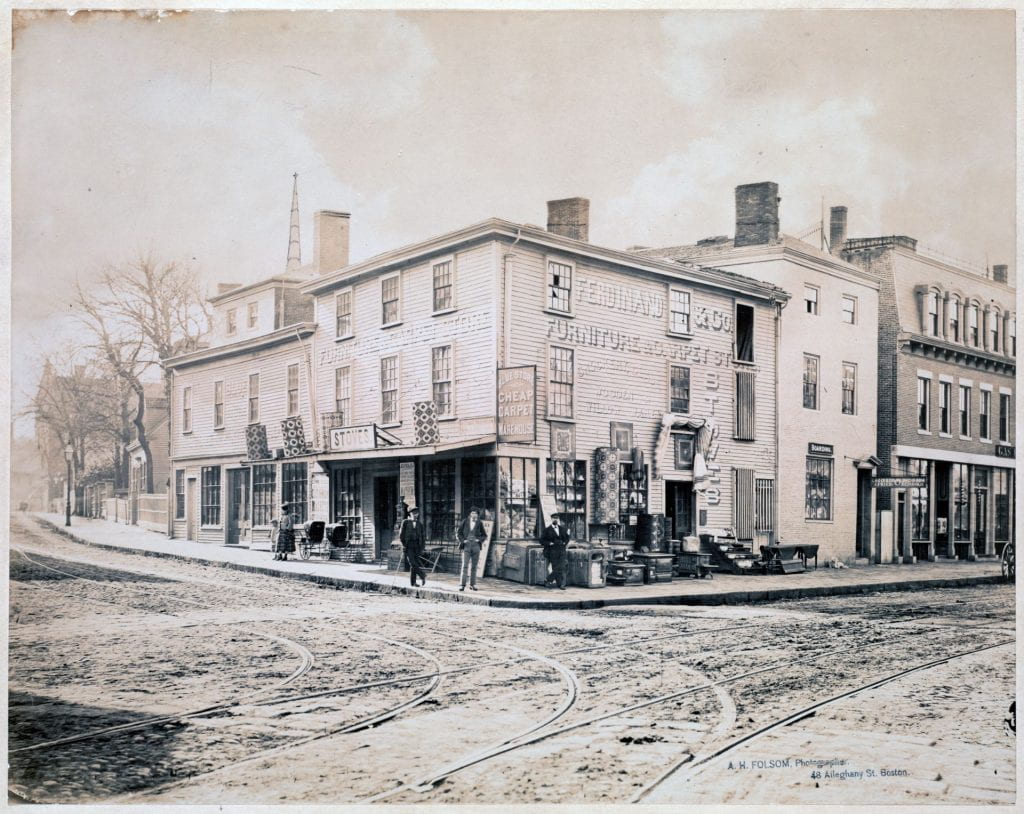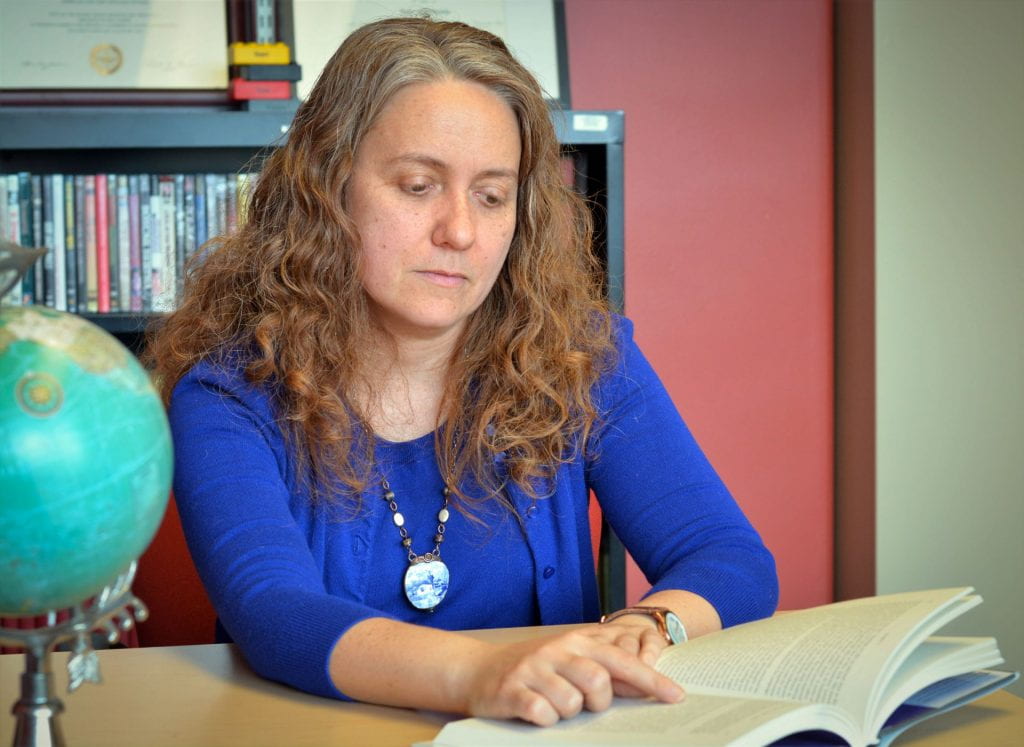The congregation at Roxbury’s historic Eliot Congregational Church has come to know Wentworth well after a flurry of architecture, construction management, and marketing related classes visited the property to find ways to repurpose and save it (see our Winter 2018/19 issue).
But Ella Howard’s “Boston History” class took time to learn more about the people who call the church home. She and more than 100 of her students spent two semesters interviewing 50 parishioners, uncovering the human side of the church and why historical preservation is important to a community. “The history of Eliot is the history of Roxbury,” says Howard.
Hundreds of pages of transcripts have been presented to the church, preserving stories that would have otherwise gone untold.

The Ferdinand & Co. Furniture and Carpet Store at the corner of Washington and Warren Streets circa 1880.
TOP: Roxbury’s Guild Row section in 1939.
1. Why is it so important to tell these stories?
You don’t often know about someone’s life until after they die. This archive is a way to point out that some really incredible people are living just up the street, and they still have much to teach us. We spoke with Roderick Ireland, former chief justice of the Mass. Supreme Judicial Court and co-founder of the Roxbury Defenders group. We met Annie Johnson, a discharge nurse in World War II, and we spoke with Robert Taylor, a former bus driver who was also a vocalist and a pioneer of the rockabilly style. He’s now an inventor and our students have invited him to speak to Accelerate (Wentworth’s Innovation + Entrepreneurship Center).
2. What do you think was the biggest takeaway for Wentworth students?
That you can be successful in life and still give back and be a good neighbor. And I think that these students have a newfound respect for history. These parishioners represent living, breathing history. One student told me that this was the most meaningful experience she’s had at Wentworth. Also, these students have been great at talking to people!

Ella Howard in her Beatty Hall office
3. Is this project unique?
The Eliot project is not a model that many schools have used, at least not at this scale and in a public history sense. This project has a service- learning aspect and an actual deliverable to the church. We’re thinking of doing something similar in the fall with local senior centers.
4. What interested you about teaching history at Wentworth?
I did my Ph.D. (in American and New England Studies) at Boston University, so I was excited to return to Boston, one of the best cities to be a historian. And I was hired to teach digital history and there were already several people doing that here, which is rare, so it was great to have a strong team in place teaching history in a 21st-century way.
5. You study urban history and renewal, particularly from a race relations angle, and spent a lot of time teaching and researching in Georgia. You authored a book on homelessness in New York and were recently granted a fellowship to research the historic preservation movement in cities like New Orleans. What has struck you about Boston in your nearly three years at Wentworth?
I’m still learning about the city in many ways, but certainly the gentrification of certain areas has been interesting to track. The West End, I think, is a cautionary tale of breaking down a strong community that was in place. But I think an area like Mission Hill and the Eliot Church represent an opportunity to maintain character and preserving the stories of community members is one way to get there.
—Greg Abazorius

